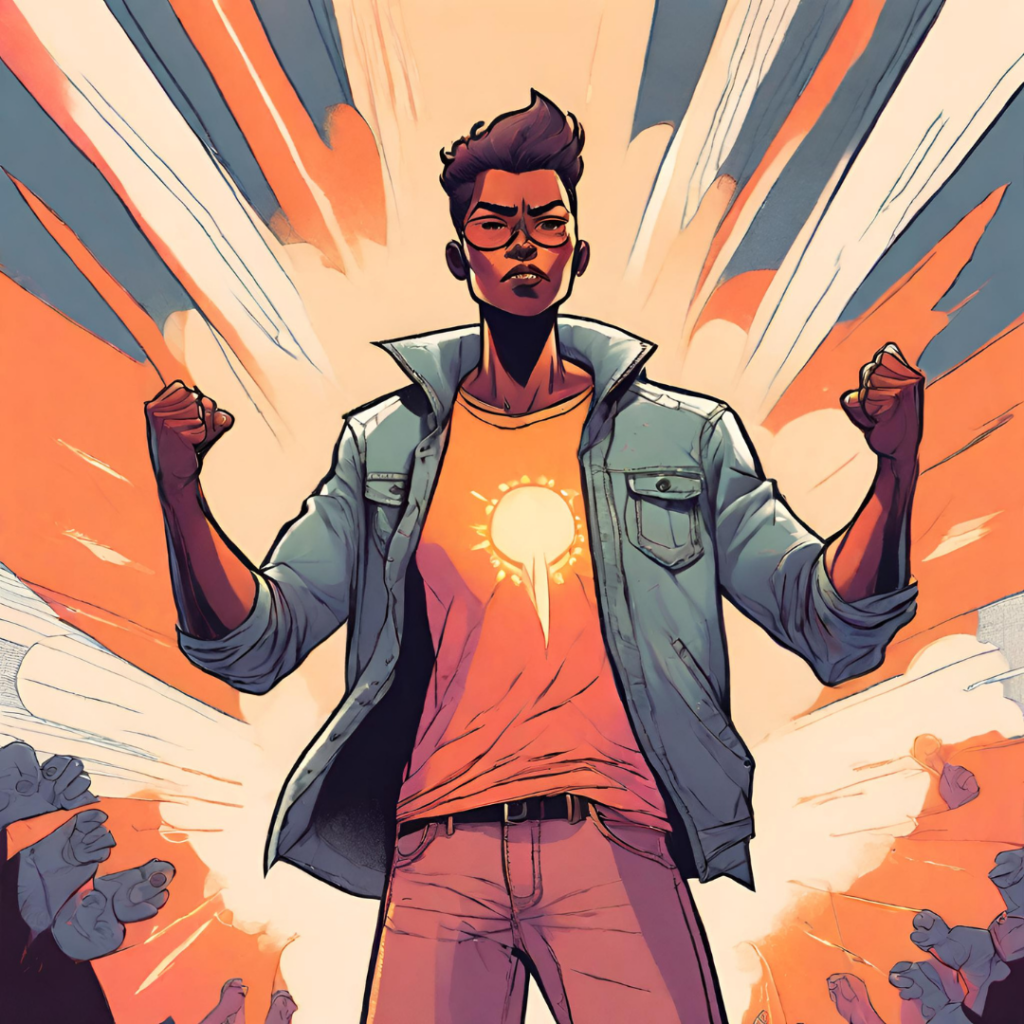For some time I have inherently known the power that comes with empathy, whether that is self-empathy or empathy for other, but it was not until someone in the Intro Course shared a personal story that it became explicitly clear to me.
Without getting into too many personal details, I can share that this person was out in public with his child and he made a decision to do something. A woman saw him and had thoughts that what he did was unsafe for his child, so she reprimanded him and shared her blatant judgments about what he did. Now, he did not agree with these judgments, nor did he think what he did was unsafe, but instead of arguing with this woman or internalizing what she said, he gave her empathy. In that moment – a moment in which a stranger was yelling judgments at him – he was able to lean in with curiosity and listen for the need that was coming from this upset stranger. He even later noted that he felt touched and grateful that this stranger seemed to have so much care and concern for his child’s safety. He was not angry at all, or even annoyed.
And this is what I’m talking about when I say that there is power that comes with empathy. First and foremost, there is power over yourself. When you are able to do what this person did – listen for the need instead of internalizing the blame – you have power over your own emotional state. That situation could have very easily turned into a day ruiner. Instead, he had choice around how he received the words from that stranger.

Now, I want to note that this is not always easy. There are definitely times in which someone says something that might be hard to hear and it is hard to hear. Emotions may come up whether you want them to or not. But even in those instances, having empathy for self can bring you power, because you can lessen any charge that may have bubbled up, and move to a more calm and rational head space. Instead of reacting, empathy gives us choice to respond with thought and care.
Additionally, beyond self-power, empathy can often give you power over the outcome of the situation. Think about it: in any instance that you experience, you are a part of that experience. You have some agency in what goes down. If you are simply reacting from an amygdala response, the other parties in the situation may react to your reaction… and this, more or less, is the cycle of conflict. But, if instead of reacting you engage your pre-frontal cortex, start to look at the situation objectively, and think about the feelings and needs of yourself and other, you are much more likely to quell the desire to blindly react, but rather you respond in a way that considers the possible needs of the person in front of you. When responding in this way – with compassion, care, and intention – you’ve taken power back from your lizard brain, and likely the person/people in front of you will probably calm down as well.
And let me just mention that most people are not used to having an experience of being heard or understood when they are angrily yelling at someone on the street. Instead, they are used to more conflict. The mere shock factor of being held in an emotionally safe way by a stranger they just yelled at is usually enough to calm someone down, but, as we have seen time and time again, empathy alone (without the shock factor) also accomplishes this goal. So not only do you have power over your response, but your response will likely dictate the outcome of the event in some way.
Finally, there is power in empathy in the sense that you can have connection with someone and disagree with them at the same time. In the example above, the person in this situation shared with our cohort that he did not agree with the woman yelling at him, and he didn’t have to! He was able to guess her needs around the situation, have connection with her, and still hold his thoughts about what he did without adopting hers. I think people often assume that they must agree with others to have connection with them, but that is simply not the case. Empathy allows us to experience connection, even in times of conflict, without agreeing with the other party. And to me, that is pretty dang cool.
As always, if this all sounds intriguing to you, please know that you can learn this stuff as well! The Bigbie Method has an Intro to Nonviolent Communication course that will teach you how to have empathy for yourself and others, even in times of conflict, plus much more. I simply share snippets of how empathy and NVC can benefit one’s life, or even specific NVC tools, but these works are not exhaustive, and formal teaching and guidance is really quite beneficial when trying to be effective with this stuff. I highly recommend checking out the Intro Course if you are serious about fostering greater connection in your life with yourself and those around you.


